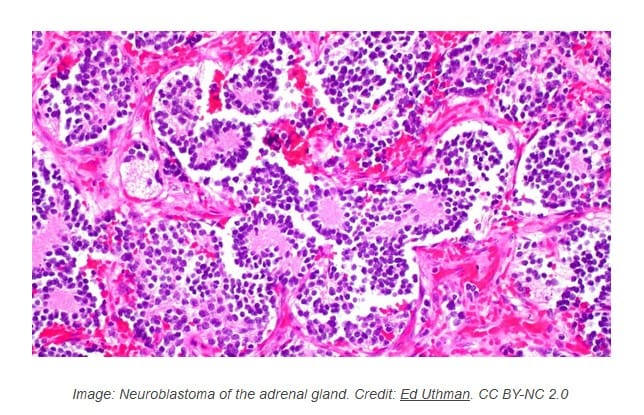RedHill Receives FDA Orphan Drug Designation for Neuroblastoma Treatment

Opaganib has been granted orphan drug designation for the treatment of neuroblastoma in children
RedHill Biopharma, based in Tel Aviv, has received orphan drug designation from the FDA for Opaganib. This drug is a proprietary and investigational host-directed treatment for neuroblastoma, a type of cancer that primarily affects infants, with most cases being diagnosed around 17 months of age. RedHill made the FDA decision public through a press release on Aug. 26, 2024.
The FDA has the power to designate a drug or biological product as "orphan" if it is used to prevent, diagnose, or treat a rare disease or condition. Neuroblastoma is a relatively uncommon form of cancer in children. It makes up about 10% of all childhood cancers in the United States. Among children under the age of 15, it affects around 11 to 13 out of every million. However, the number of cases increases significantly for infants under one year old, with approximately 65 out of every million being diagnosed with neuroblastoma. This means there are about 650 new cases of neuroblastoma in infants each year.
The cancer starts in nerve cells found in the adrenal glands or the nerve tissue along the spine, chest, abdomen, or pelvis. Typically, it is more common in children aged five or younger. However, once diagnosed, it can be quite aggressive and challenging to treat. Shockingly, it accounts for 15% of all pediatric cancer-related deaths, as reported by RedHill.
Receiving an orphan drug designation can provide sponsors with various incentives, such as tax credits for qualified clinical trials, exemption from user fees, and the possibility of seven years of market exclusivity after approval. However, it's important to note that this designation is a distinct process from seeking approval or licensing. The FDA applies the same rigorous scientific review process to drugs for rare diseases as it does to all other products.
Opaganib has received its second orphan drug designation in the field of oncology, following its initial designation for cholangiocarcinoma (CCA, or bile duct cancer), as confirmed by Mark Levitt, MD, PhD, RedHill's chief scientific officer.
"Opaganib has shown promising results in early clinical trials for different types of solid tumor cancers, including prostate cancer and CCA. It has also demonstrated positive outcomes in preclinical studies supported by the US government and conducted by Apogee, covering various indications such as radioprotection. Additionally, Opaganib has shown potential when used in combination with RedHill's RHB-107 (upamostat), another investigational drug," Levitt stated in the press release. Additionally, the company has plans to conduct a Phase II study funded by external sources to explore the potential of opaganib in enhancing hormone receptor pathway inhibition therapy.
Opaganib is an oral medication that RedHill claims has a wide range of benefits. It is said to have anticancer properties, as well as anti-inflammatory and antiviral activity. It can target various conditions such as cancers, gastrointestinal- and obesity-related syndromes, sulfur mustard exposure, and even viruses like COVID-19, Ebola, and others that have the potential to become pandemics. Additionally, it has demonstrated promising preclinical outcomes in the field of renal fibrosis.
Source: RedHill Biopharma, FDA





